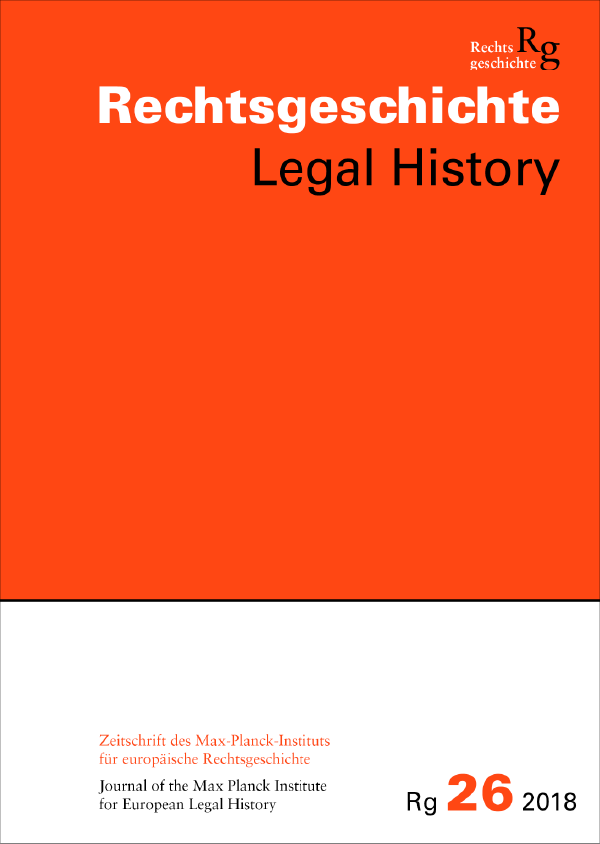Jurisdictional Autonomy and the Autonomy of Law: End of Empire and the Functional Differentiation of Law in 19th-century Latin America
DOI:
https://doi.org/10.12946/rg26/325-337Keywords:
empire, Latin America, legal history, indigenous peoples, frontiersAbstract
This contribution discusses the collapse of the Iberian Empire and the transformation of legal regimes in 19th-century Latin America. While most of the literature on this period centers on the process of state-building and the reform of legal institutions, my discussion will focus on the important changes produced in the form of law according to Luhmann’s theory of functional differentiation. The main argument is that systems theory can provide a re-evaluation of the history of law in the 19th and 20th centuries if one focuses on the idea of the autonomy of law. I argue that this way of reading the functioning of law is analogous to the legal historical re-evaluation of early-modern Iberian legal regimes through the idea of jurisdictional autonomy. Taken together both ways of understanding autonomy in legal observation direct our attention to shifts in law that go beyond the question of empire and nation-state building.
Downloads
Published
How to Cite
Issue
Section
License
Copyright (c) 2018 Author

This work is licensed under a Creative Commons Attribution-NonCommercial-NoDerivatives 3.0 Unported License.





